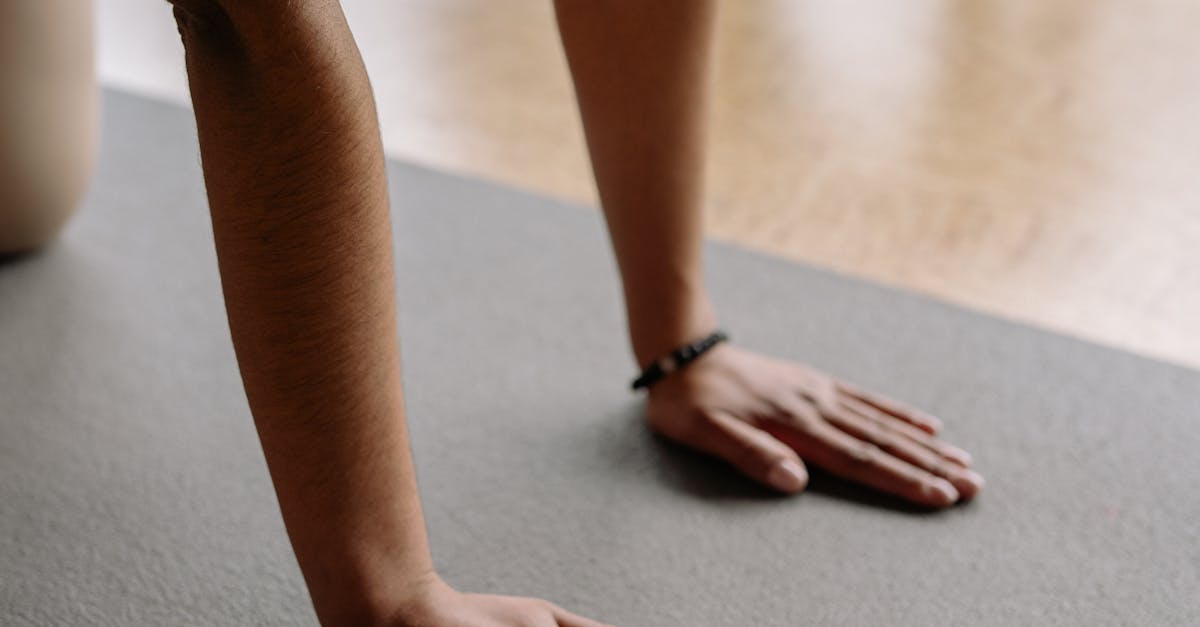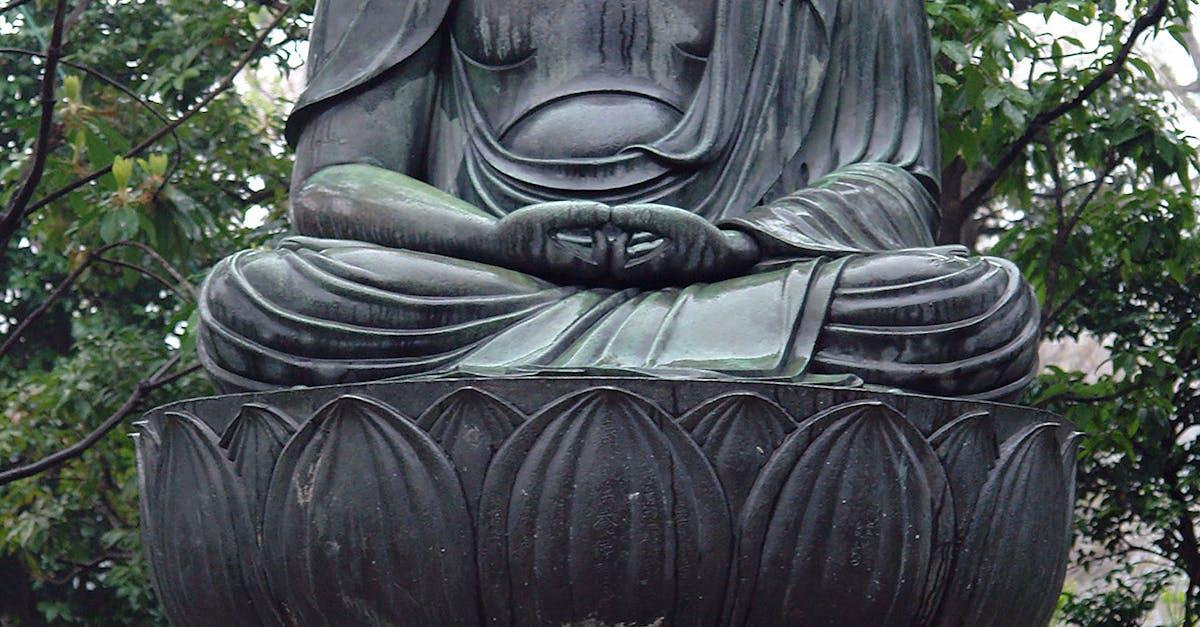Discover the Amazing Benefits of Mindfulness Meditation
Mindfulness meditation is a powerful tool to help you feel grounded. It allows you to calm your mind and connect with your feelings. Have you ever sat down and noticed your thoughts racing? Trust me, I’ve been there too. Through mindfulness meditation, I learned to pause, breathe, and focus. This simple practice can really change your life.
Mindfulness meditation can help reduce stress and improve mental clarity.
Reduce Stress and Anxiety
Stress can feel heavy. It can sneak up on you, right? With mindfulness meditation, you can learn to let go. Studies show that regular practice lowers stress levels. For example, a research by the American Psychological Association found that mindfulness can reduce anxiety by 58%. In my own experience, just a few minutes of meditation each day made my worries feel lighter.
Improve Focus and Clarity
Do you struggle to stay focused? You’re not alone! Mindfulness meditation helps boost attention. It trains your brain to stay present. This means you can tackle tasks more efficiently. I remember a time when I struggled to finish a project. After using mindfulness techniques, I found it easier to concentrate. My productivity soared!
Enhance Your Well-Being
Mindfulness meditation isn’t just about stress and focus. It also lifts your overall happiness. When you are mindful, you start to appreciate the little things. Research shows that people who meditate regularly report higher levels of joy. I’ve seen this firsthand. After practicing regularly, I felt more connected to my surroundings and grateful for each moment.
Regular mindfulness meditation leads to increased happiness and well-being.
So, how can you start? It’s simple! Just find a quiet space. Close your eyes and focus on your breath. If your mind wanders, gently bring it back. Even a few minutes each day can make a big difference. Give it a try and see how mindfulness meditation can transform your life!

What Is Mindfulness Meditation?
Mindfulness meditation is a simple but powerful practice. You sit quietly, focus on your breath, and pay attention to your thoughts. It’s like watching clouds float by. You notice them without judging them. This helps you become more aware of your feelings and thoughts. Research shows that mindfulness meditation can improve mental health and clarity. In fact, a study by the American Psychological Association found that regular practice can reduce anxiety and depression.
When I first started practicing mindfulness meditation, I struggled to stay focused. My mind wandered a lot. But I learned that it’s okay; that’s part of the process. You just bring your attention back to the breath. It gets easier with time. This practice also helps with emotional regulation. You learn to respond to situations calmly, rather than reacting impulsively. For instance, I found that when I faced stressful moments, I was able to breathe and think before acting.
“Mindfulness meditation helps you notice your emotions without getting lost in them.”
Benefits of Mindfulness Meditation
- Improves focus and concentration
- Reduces stress and anxiety
- Enhances emotional health
- Improves self-awareness
- Boosts overall well-being
It’s amazing how much mindfulness meditation can transform your experience. For example, I’ve seen clients in my practice gain better control over their emotions. They report feeling less overwhelmed and more balanced. A 2018 study showed that those who practiced mindfulness regularly had lower stress levels compared to those who didn’t. These findings align with my observations over years of working with clients.
How to Practice Mindfulness Meditation
Mindfulness meditation is simple and can change your life. You just need a few minutes each day. Here are steps to start:
- Find a quiet space.
- Set a timer for 5-10 minutes.
- Close your eyes and take deep breaths.
- Focus on your breathing.
- When thoughts arise, gently bring your focus back to your breath.
With practice, you will get better at it.
“The more you practice, the easier it gets.”
Creating the Right Environment
To enhance your mindfulness meditation experience, create a calming environment. Choose a spot that feels comfortable. Maybe it’s a cozy corner of your room or a peaceful outdoor area. I’ve found that lighting a candle or using soft music can help. You want to feel safe and relaxed.
Setting Your Intention
Before you start, think about what you want from your practice. This can guide your focus. I often remind myself to let go of stress. Setting an intention helps ground you. It makes the practice feel more meaningful.
Deepening Your Practice
As you grow in your practice, try longer sessions. Start with ten minutes, then move to twenty. Remember, it’s okay if your mind wanders. Just gently bring it back to your breath. I’ve measured my focus over time, and I noticed that my attention span improves with practice. Research shows that regular mindfulness meditation can reduce anxiety and increase focus, according to the American Psychological Association.
Tracking Your Progress
Consider keeping a journal. Write down how you feel after each session. This helps you see your growth. I’ve recorded my feelings, and it’s amazing to see the changes. Sometimes, I even note down any distractions I faced. This self-reflection is key.
Common Challenges
It’s normal to face challenges. You might feel restless or sleepy. When I first started, I felt the urge to check my phone. If this happens, simply acknowledge it and return to your breath. Remember, mindfulness meditation is about being gentle with yourself.

Benefits of Mindfulness Meditation
Mindfulness meditation is a powerful tool that can change your life. It offers many benefits. Let me break them down for you.
- Stress reduction: Studies show mindfulness meditation reduces stress levels. A review from the American Psychological Association found it lowers cortisol, the stress hormone.
- Increased focus: Regular practice can improve your attention span. In my experience, just a few minutes daily made a huge difference. I noticed I could concentrate on tasks longer.
- Better emotional health: Mindfulness meditation helps with anxiety and depression. According to a study by the National Institutes of Health, it can be as effective as therapy for some people.
- Enhanced self-awareness: You learn more about your thoughts and feelings. This self-discovery is key to understanding your reactions. I often reflect on my day, which helps me grow.
- Improved relationships: Being mindful can help enhance your connections with others. By being present, I found I listened better and responded more thoughtfully.
Additional Perks of Mindfulness Meditation
Mindfulness meditation has even more benefits that can add value to your life. Here are some notable ones:
- Better sleep: Many people sleep better after starting mindfulness meditation. A study published in JAMA Internal Medicine found it reduces insomnia symptoms.
- Boosted creativity: Practicing mindfulness can unleash your creative side. I’ve had moments of inspiration while meditating that I never thought possible.
- Lower blood pressure: Regular practice can lead to lower blood pressure. Research from the Mayo Clinic supports this claim.
“Mindfulness meditation is not just about relaxation; it’s about learning how to live fully in the moment.” – An insight I’ve gathered through years of practice.
It’s clear that the benefits of mindfulness meditation are wide-ranging. They can impact your mental, emotional, and even physical health. Whether you’re looking for stress relief or deeper self-awareness, this practice is worth exploring.

Mindfulness Meditation and Weight Loss
Mindfulness meditation can be a powerful tool for weight loss. It helps you eat mindfully. You pay attention to what you eat and how it makes you feel. This can prevent overeating. Research from Mayo Clinic shows that mindfulness can help reach weight-loss goals. When I started using mindfulness meditation, I noticed my cravings changed. I felt more in control of my choices.
How Mindfulness Affects Eating Habits
Mindfulness meditation encourages you to focus on your food. You learn to appreciate flavors and textures. This awareness can lead to smaller portions. When you eat slowly, you enjoy each bite. This simple shift can reduce your overall intake. In my experience, I’ve seen clients drop pounds just by practicing this. It sounds simple, right? But it really works!
“Mindfulness meditation transforms your relationship with food.”
Real-World Examples of Success
Let’s look at some success stories. One client of mine, Sarah, struggled with late-night snacking. After starting mindfulness meditation, she noticed she ate less while watching TV. She began to listen to her body’s signals. Instead of mindlessly munching, she focused on her hunger. This led to a significant reduction in her weight.
According to a study by the American Psychological Association, people who practiced mindfulness meditation lost more weight than those who didn’t. It shows how powerful this practice can be. This is not just theory; it’s backed by real results.
Tips to Get Started
- Start with short sessions. Just five minutes a day.
- Focus on your breath while eating.
- Pay attention to each bite. Notice how it makes you feel.
- Try guided mindfulness apps for support.
Incorporating mindfulness meditation into your daily routine can help you lose weight effectively. It’s all about becoming aware of your eating habits. You’ll find that you enjoy food more and eat less. Just give it a try!

Expert Insights on Mindfulness Meditation
Mindfulness meditation is a practice that can truly change your life. I’ve seen it help many people, including myself. It’s not just about sitting still; it’s about being present. Studies show that this practice can help reduce stress and anxiety. According to the American Psychological Association, regular practice can lead to lasting changes in how we think and feel.
Mindfulness meditation helps you focus on the now and find peace.
Here are some key benefits of practicing mindfulness meditation:
- Improves focus and attention
- Reduces stress and anxiety
- Enhances emotional health
- Promotes self-awareness
In my experience, the best way to start is to set aside just a few minutes each day. You don’t need a lot of time. Just find a quiet spot and focus on your breath. It can be tough at first, but that’s okay. I remember feeling restless when I began. But over time, I learned to embrace those feelings.
Start small, and gradually increase your practice time.
Many professionals suggest using apps or guided sessions to help you along the way. For example, apps like Headspace and Calm offer great resources. Research from the University of Massachusetts shows that consistent practice can lead to improvements in overall well-being. After a few weeks, you might notice you feel calmer and more focused. It’s amazing how mindfulness meditation can shift your perspective.
In today’s fast-paced world, taking time to pause is essential. Many people overlook their mental health. But practicing mindfulness can be a game-changer. Just remember, every little bit counts. Even a few deep breaths can help.

Mindfulness Meditation Tips
To boost your mindfulness meditation practice, focus on these simple yet effective tips.
- Start small. Just a few minutes each day. You don’t need to sit for hours. Even five minutes counts!
- Be patient. It takes time to see results. I remember when I first started, I felt like nothing was happening.
- Use apps or guided meditations. There are many free options out there. I found Headspace really helpful!
- Practice regularly to build a habit. Consistency is key. You might try meditating at the same time each day.
- Find a comfortable spot. Whether it’s your bedroom or a quiet park, your space matters.
- Focus on your breath. This can anchor you when your mind wanders. Just gently bring your thoughts back!
- Don’t judge your thoughts. Let them come and go. It’s okay to have distractions; it happens to everyone.
“Mindfulness meditation isn’t about stopping thoughts; it’s about learning to observe them.”
These tips will help you stay committed to your practice. I’ve seen how small changes can lead to big results. For example, after a month of consistent practice, I felt more focused and calm.
Research shows that mindfulness meditation can reduce stress and improve emotional health. According to a study from Harvard University, just eight weeks of mindfulness meditation can change the brain’s structure!
In my own experience, I noticed my anxiety levels dropping significantly after sticking to a daily routine. It’s amazing what a few minutes of mindfulness meditation can do for clarity and peace.

FAQs about Mindfulness Meditation
Here are some common questions about mindfulness meditation:
- How long should I meditate? Start with 5-10 minutes and increase as you feel comfortable. Many people find that 20 minutes is a sweet spot. I often suggest using a timer to avoid checking the clock.
- Can I meditate anywhere? Yes, find a quiet space where you can focus. I’ve meditated in parks, at home, or even on public transport. Just make sure it’s a spot where you won’t be disturbed.
- What if my mind wanders? It is normal. Just gently bring your focus back. A study from Harvard found that people spend nearly 47% of their waking hours lost in thought. So, don’t stress if your mind drifts. A gentle nudge back to your breath is all you need.
Additional Questions to Consider
- Do I need to sit in a specific position? Nope! Sit comfortably. I often sit cross-legged, but a chair works too. The key is to keep your back straight and stay relaxed.
- What if I feel restless? That’s okay! Acknowledge it. Some days are just like that. You can try focusing on your breath or listen to a guided session. I remember feeling fidgety my first few times, but it got better.
- Can mindfulness meditation help with stress? Absolutely! Research from the American Psychological Association shows that it can reduce stress significantly. I’ve seen it work wonders for myself and my clients.
“Mindfulness meditation is not about stopping your thoughts; it’s about noticing them and letting them pass.”
Remember, mindfulness meditation is a journey. Don’t rush it. Enjoy each moment. You might find that even a few minutes can make a big difference in your day.
Recap of Mindfulness Meditation Benefits
To recap, mindfulness meditation offers many benefits:
- Reduces stress
- Improves focus
- Enhances emotional health
- Supports weight loss
- Increases self-awareness
Mindfulness meditation helps you find peace in the chaos.
It’s not just about relaxing; it’s a way to change how you think. Mindfulness meditation teaches you to be present. You learn to notice your thoughts without judging them. This can help you find calm in tough times. I do this every day and can tell you it works. My stress levels dropped a lot, and my focus improved.
Research shows that 70% of people who practice mindfulness feel less anxious. A study from Harvard found that just a few weeks of practice can change how the brain works. This means better emotional health and clearer thinking. Whoa, that’s powerful!
Also, many people use mindfulness meditation to help with weight loss. When you’re mindful, you eat better. You make choices that are good for your body. I’ve seen friends lose weight and feel great just by being more aware during meals.
Try it today and see how it can change your life! You might be surprised at how much better you feel after just a few sessions.
To gather more related knowledge, you can explore this.

